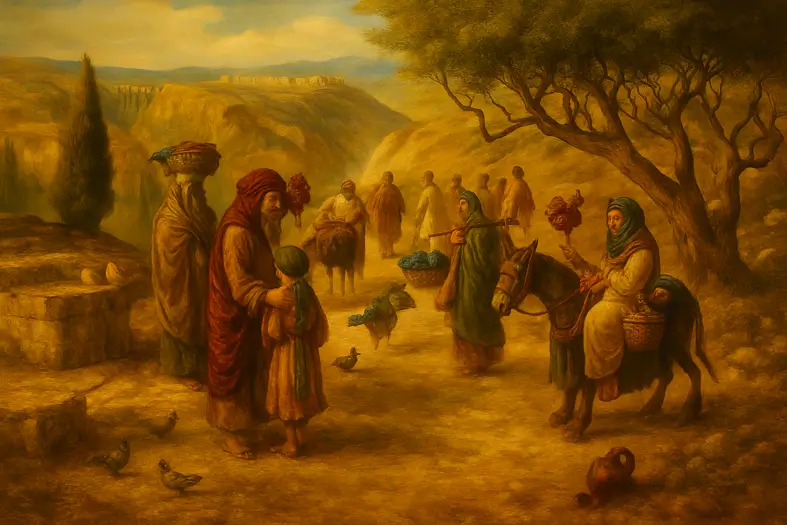


We are commanded to redeem the firstborn donkey by giving a lamb (or goat) to a Kohen.
This mitzvah obligates the redemption of the firstborn donkey, unlike other non-kosher animals. The Torah singles out the donkey because of its importance in agricultural labor and transport in Israel’s early history.
The redemption is fulfilled by giving a lamb (or goat) to a Kohen. If the owner refuses, he must perform arifah (breaking the donkey’s neck), which wastes the animal — emphasizing the mitzvah’s seriousness.
The mitzvah demonstrates that even material possessions (like donkeys, vital for livelihood) are sanctified by Hashem and must be acknowledged through redemption. It parallels Pidyon HaBen and Peter Behemah Tehorah (redeeming firstborn kosher animals).
Commentary & Classical Explanation:


Represents Emunah—the deep, inner trust in Hashem’s presence, oneness, and constant involvement in our lives. This badge symbolizes a heartfelt connection to G-d, rooted in belief even when we cannot see. It is the emotional and spiritual core of many mitzvot.
Represents the concept of spiritual intentionality, purity, and sanctity—set apart for a higher purpose.
Mitzvot that strengthen communal life — showing up, participating, supporting, and belonging. Community is where holiness is shared, prayers are multiplied, and responsibility becomes collective.
Signifies awe and reverence toward Hashem—living with awareness of His greatness and presence.
Mitzvot that define and deepen the relationship between a person and their Creator. These include commandments involving belief, prayer, Shabbat, festivals, sacrifices, and personal holiness — expressions of devotion rooted in divine connection.

Dive into mitzvos, prayer, and Torah study—each section curated to help you learn, reflect, and live with intention. New insights are added regularly, creating an evolving space for spiritual growth.

Explore the 613 mitzvos and uncover the meaning behind each one. Discover practical ways to integrate them into your daily life with insights, sources, and guided reflection.

Learn the structure, depth, and spiritual intent behind Jewish prayer. Dive into morning blessings, Shema, Amidah, and more—with tools to enrich your daily connection.

Each week’s parsha offers timeless wisdom and modern relevance. Explore summaries, key themes, and mitzvah connections to deepen your understanding of the Torah cycle.